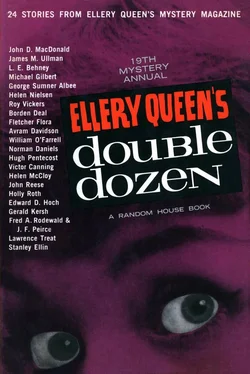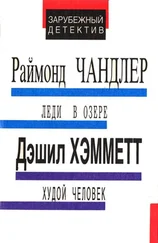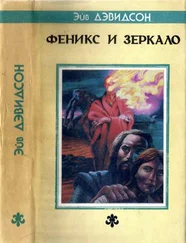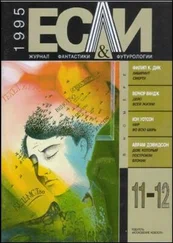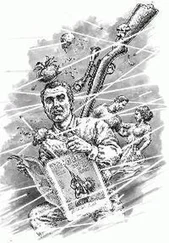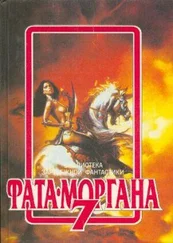“You see him every day. Giorgio. You know Giorgio?”
“The cleaning man?”
“He cleans, he carries, he gets drunk whenever he can, that’s Giorgio. Useless, really, but what can I do? For the girl’s sake I make as much of him as I can. You see the trouble with kindness? I wish to repay a debt, so now the windows are forever dirty. When you need that one he is always drunk somewhere. And always with a bad temper. His father had a bad temper, too, but at least he had great skill. As for the girl, she is an angel. But sad. That loneliness, you know, it can kill you.” The Signora leaned forward inquiringly, her bosom overflowing the table. “Maybe if you would talk to her—”
“I tried to,” said Noah. “She didn’t seem very much interested.”
“Because you are a stranger. But I have seen her watch you when you pass by. If you were a friend, perhaps. If the three of us dined together tonight—”
Signora Alfiara was someone who had her own way when she wanted to. The three of them dined together that night, but in an atmosphere of constraint, the conversation moving only under the impetus of questions the Signora aimed at Noah, Rosanna sitting silent and withdrawn as he answered.
When, while they were at their fruit and cheese, the Signora took abrupt and smiling leave of them with transparent motive, Noah said with some resentment to the girl, “I’m sorry about all this. I hope you know I wasn’t the one to suggest this little party. It was the lady’s idea.”
“I do know that.”
“Then why take out your mood on me?”
Rosanna’s lips parted in surprise. “Mood? But I had no intention — believe me, it has nothing to do with you.”
“What does it have to do with? Your father?” And seeing from her reaction that he had hit the mark, he said, “Yes, I heard about that.”
“Heard what?”
“A little. Now you can tell me the rest. Or do you enjoy having it stuck in your throat where you can’t swallow it and can’t bring it up, one way or the other?”
“You must have a strange idea of enjoyment And if you want the story, go to the synagogue, go to the ghetto or Via Catalana. You’ll hear it there quick enough. Everyone knows it.”
“I might do that First I’d like to hear your side of it.”
“As a policeman? You’re too late, Mr. Freeman. The case against Ezechiele Coen was decided long ago without policemen or judges.”
“What case?”
“He was said to have betrayed leaders of the Resistance. That was a lie, but partisans killed him for it. They shot him and left him lying with a sign on him saying Betrayer. Yes, Mr. Freeman, Ezechiele Coen who preached honor to his children as the one meaningful thing in life died in dishonor. He lay there in the dirt of the Teatro Marcello a long time that day, because his own people — our people — would not give him burial. When they remember him now, they spit on the ground. I know,” the girl said in a brittle voice, “because when I walk past them, they remember him.”
“Then why do you stay here?”
“Because he is here. Because here is where his blackened memory — his spirit — remains, waiting for the truth to be known.”
“Twenty years after the event?”
“Twenty or a hundred or a thousand. Does time change the truth, Mr. Freeman? Isn’t it as important for the dead to get justice as the living?”
“Maybe it is. But how do you know that justice wasn’t done in this case? What evidence is there to disprove the verdict? You were a child when all this happened, weren’t you?”
“And not even in Rome. I was in England then, living with a doctor who knew my father since their school days. Yes, England is far away and I was a child then, but I knew my father.” If faith could really move mountains, Noah thought. “And what about your brother. Does he feel the way you do?”
“Giorgio tries to feel as little as he can about it. When he was a boy everyone said that some day he would be as fine a man and a doctor as his father. Now he’s a drunkard. A bottle of wine makes it easy not to feel pain.”
“Would he mind if I talked to him about this?”
“Why should you want to? What could Ezechiele Coen mean to you anyhow? Is Rome so boring that you must play detective here to pass the time? I don’t understand you, Mr. Freeman.”
“No, you don’t,” Noah said harshly. “But you might if you listen to what I’m going to tell you. Do you know where I got the time and money to come on a trip like this, a plain, ordinary, underpaid cop like me? Well, last year there was quite a scandal about some policemen in New York who were charged with taking graft from a gambler. I was one of them under charges. I had no part of that mess, but I was suspended from my job and when they got around to it, I was put on trial. The verdict was not guilty, I got all my back pay in one lump, and I was told to return to duty. Things must have looked fine for me, wouldn’t you think?”
“Because you did get justice,” Rosanna said.
“From the court. Only from the court. Afterward, I found that no one else really believed I was innocent. No one. Even my own father sometimes wonders about it. And if I went back on the Force, the grafters there would count me as one of them, and the honest men wouldn’t trust me. That’s why I’m here. Because I don’t know whether to go back or not, and I need time to think, I need to get away from them all. So I did get justice, and now you tell me what good it did.”
The girl shook her head somberly. “Then my father isn’t the only one, is he? But you see, Mr. Freeman, you can defend your own good name. Tell me, how is he to defend his?”
That was the question which remained in his mind afterward, angry and challenging. He tried to put it aside, to fix on his own immediate problem, but there it was. It led him the next morning away from proper destinations, the ruins and remains italicized in his guide book, and on a walk southward along the Tiber.
Despite gray skies overhead and the dismally brown, turbid river sullenly locked between the stone embankments below, Noah felt a quickening pleasure in the scene. In a few days he had had his fill of sightseeing. Brick and marble and Latin inscriptions were not really the stuff of life, and pictures and statuary only dim representations of it. It was people he was hungry to meet, and now that he had an objective in meeting them he felt more alive than he had since his first day in Rome. More alive, in fact, than in all those past months in New York, working alongside his father in the old man’s tailor shop. Not that this small effort to investigate the case of Ezechiele Coen would amount to anything, he knew. A matter of dredging up old and bitter memories, that was about what it came to. But the important thing was that he was Noah Freeman again, alive and functioning.
Along Lungotevere dei Cenci construction work was going on. The shells of new buildings towered over slums battered by centuries of hard wear. Midstream in the Tiber was a long, narrow island with several institutional buildings on it. Then, facing it from the embankment, the synagogue came into view, a huge, Romanesque, marble pile.
There was a railing before the synagogue. A young man leaned at his ease against the railing. Despite the chill in the air he was in shirt sleeves, his tanned, muscular arms folded on his chest, his penetrating eyes watching Noah’s approach with the light of interest in them As Noah passed, the man came to attention.
“ Shalom .”
“Shalom?” Noah said, and the young man’s face brightened. In his hand magically appeared a deck of picture post cards.
“Post cards, hey? See, all different of Rome. Also, the synagogue, showing the inside and the outside. You an Americano Ebreo, no? A landsman?”
Читать дальше
